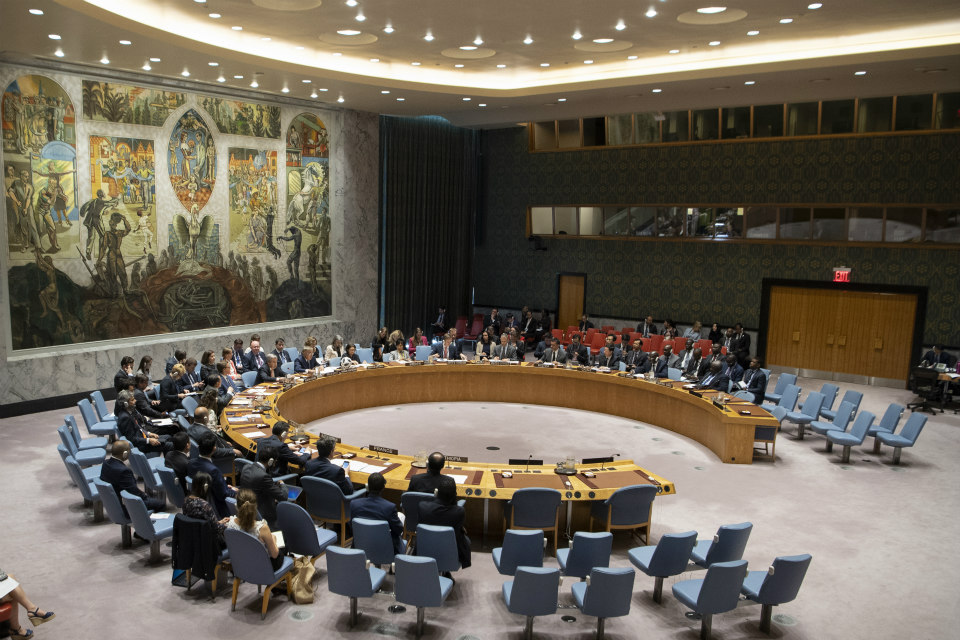A moment of opportunity for Afghanistan
Statement by Ambassador Jonathan Allen, UK Deputy Permanent Representative to the UN, at the Security Council debate on the situation in Afghanistan.

Thank you Mr President, and thank you to our briefers, particularly may I pass on my thanks to Special Representative Yamamoto for updating the Council on the latest report and for all of the work that you and your team are doing in challenging circumstances. Thank you.
Mr President, this feels like a moment of opportunity for Afghanistan.
Recent events including the unprecedented ceasefires and the preparations for upcoming elections give us all reasons to be cautiously optimistic. We must do everything we can to make the most of this opportunity to end the violence.
President Ghani’s offer to the Taleban of talks without preconditions and the ceasefires over Eid al-Fitr are most welcome. The extraordinary images of soldiers and Taleban fighters embracing in the streets of cities across Afghanistan gave hope to millions of Afghans that an end to the conflict was achievable.
The Afghan Government has shown an impressive commitment to peace. Now we need a similar commitment from the Taleban. The Taleban need to decide whether they want to be a part of the future of Afghanistan. It seems to be what many of their fighters want. It is what the Afghan people want. It is time for the Taleban’s leaders to show true courage and true leadership and work for peace.
Of course, the only solution to the conflict is an Afghan-led and owned political process.
Mr President, there are now four months to go until parliamentary elections in October. We welcome the progress to date on key electoral reforms and thank UNAMA for supporting the Afghan government in their preparations.
Boris Johnson, the British Foreign Secretary, was in Kabul only yesterday. And he said there that “we encourage UNAMA to keep up the pressure on the Afghan Government and its electoral management bodies to ensure credible, inclusive and timely elections.”
The UK and the wider donor community are also playing our parts, and we are encouraging the Independent Election Commission (IEC) and Electoral Complaints Commission (ECC) to deliver elections on time with a focus on reducing opportunities for fraud. We are particularly concerned that key positions remain unfilled at the IEC and we call on the Afghan Government to appoint a new CEO and the provincial ECC Commissioners without delay.
Following the elections, the Geneva Conference on Afghanistan in November will be an opportunity for donor countries and the Government of Afghanistan to take stock of progress since 2016 and to ensure the government is on track to deliver its reform commitments. This is also an opportunity for the donor community and the government to consider the future of international support beyond 2020.
Mr President, at this moment of potential change, we should reflect on progress to date, particularly on the rights of women and girls. This is a personal priority of the British Foreign Secretary, who met Afghan girls participating in a UK-funded sports education programme during his recent trip. Over the last six years, UK aid has helped 300,000 marginalised Afghan girls into education and trained over 10,000 teachers.
But there is some way to go to reach our goal of 12 years of quality education for all girls. The UK is contributing almost $1 billion in development funding in Afghanistan between 2016 and 2020. We will continue to work closely with our Afghan partners to promote opportunities for all Afghans.
Mr President, I began by saying that this felt like a moment of opportunity for Afghanistan. There is a prospect of peace. Elections are coming, which can help support peace and social stability. Let us stand beside our Afghan partners at this moment. Let us stand beside the Afghan people as they determine their own future.
Thank you Mr President.